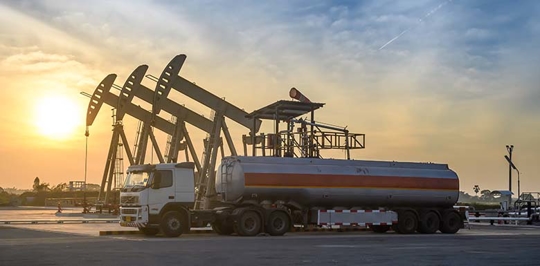A large truck accident could be catastrophic regardless of where it happens. But with so many big trucks in the West Texas Oil industry, it’s important to understand just how dangerous truck accidents on oilfields are. This is especially true given the trucks’ cargo, crowded work zones, and flammable materials being extracted on the job site.
With all these increased risks, employers should ensure that only qualified drivers operate tractor-trailers and tanker trucks. And injury victims should be aware of their rights and legal options.
Oilfield Truckers Require Special Certifications
Driving a truck necessitates skill and experience. Given this high standard, all truck drivers must obtain a commercial license to operate an 18-wheeler.
Because of the nature of their cargo driver, carrying oil and other hazardous materials have even more requirements concerning their training. According to 49 U.S.C. 5101, the training requirements for oil field truckers include the following:
- General awareness/familiarization
- Safety
- Security awareness
- Security training
- Driver training
When drivers fail to receive proper certifications to operate trucks on an oilfield, the likelihood of an accident increases.
What Makes Oilfield Truck Accidents Dangerous?
Oil field trucks frequently deliver heavy equipment and hazardous materials to a job site populated with workers. An accident can happen with any truck, but a truck driver’s cargo and several other factors on an oil field could increase the likelihood of an accident. In addition, if an accident did happen, being on an oil field also makes it more dangerous than a typical truck accident on the highway.
Hazardous Materials
Given the flammable and potentially dangerous cargo, truck drivers must follow specific procedures when navigating an oilfield. On the highway, a hazardous truck accident could be contained. However, a hazardous truck spill on an oilfield could ignite and engulf the entire oil rig.
Uneven Loads
Tanker trucks loaded with liquid materials, such as oil, handle much differently than tractor-trailer trucks. This liquid material creates a very uneven load likely to cause sloshing—the back-and-forth motion of liquid material.
Sloshing is a significant concern when drivers make sharp turns at high speeds. An inexperienced driver could speed around a corner, and all the liquid in the tanker truck could shift to one side, causing a rollover accident.
Truck drivers must also transport heavy equipment to and from oilfields, and unsecured loads could create issues during the unloading process. Furthermore, the ground at new job sites might not be compacted enough, and a truck driver’s load could become unstable when entering the work zone.
Oil Workers
Oilfields have many obstacles that drivers must navigate, and workers are among them. Oilfield workers might be so preoccupied with their job that they fail to notice large tanker trucks traveling through the job site.
Trucks might not see these workers when backing up their large vehicles or unloading heavy equipment, which could result in Struck-By or Caught-Between accidents.
Oilfield Hours of Service Exceptions
All truck drivers must abide by the Federal Motor Carrier Safety Administration’s hours of service regulations. These guidelines detail how long a driver can be on the road and how long they must rest. However, there is an exception to this rule once drivers arrive at the oilfield.
For many reasons, drivers might be required to remain at the job site for long periods before they can leave. During this “waiting time,” drivers are technically off-duty, and the time they wait doesn’t go against their hours-of-service limit.
Oilfield truckers might work longer hours than other commercial truck drivers. Once drivers leave the job site, they’re more likely to be fatigued, which increases their risk of causing an accident.
Can Oilfields Prevent Job Site Truck Accidents?
When equipment is being moved or unloaded onto a West Texas or New Mexico oilfield job site, there should always be a land guide to assist the driver and help avoid accidents. For instance, land guides use various hand signals to guide the driver as they’re backing up to unload their equipment, a common type of collision.
These guides also prohibit employees from walking backward when assisting drivers as they risk falling and being run over. Additionally, truck drivers should practice safe parking by ensuring their first movement out of the parking spot is forward.
Hurt in an Oilfield Truck Accident? Kemmy Law Firm Can Help
Trucks traveling to and from job sites in the Permian Basin create an added layer of risk to an already dangerous field of work. Drivers should always pay attention to oil workers on the job site and safely transport hazardous materials to their destination. When they don’t, and you get hurt, they could be liable for your damages.
Let our family of oilfield accident lawyers help you recover everything you lost. With decades of experience representing oilfield accident victims and millions recovered, call Kemmy Law Firm today at 844-334–4388 for a free consult.
The post Why Truck Accidents Are So Dangerous on an Oilfield appeared first on Kemmy Law Firm.






